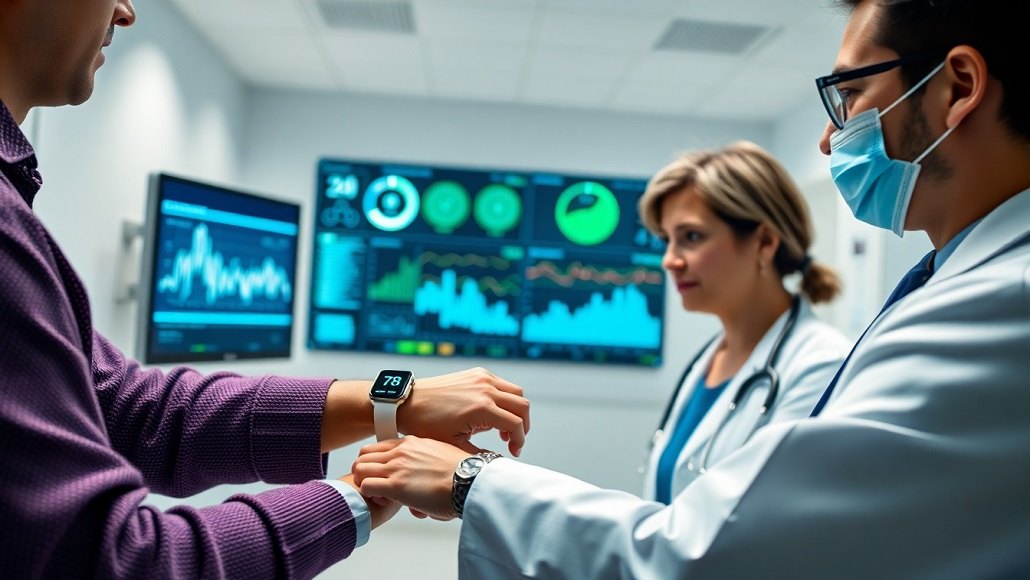Like most sectors, healthcare is changing rapidly. Patient care is vastly different from what it was a decade ago. Data management and artificial intelligence (AI) have transformed how patients interact with doctors and specialists. According to a 2023 study, the digital health market is valued at over $80 billion and is expected to surpass $200 billion by 2026. The digital marketplace shows no signs of slowing, especially for something as essential as global healthcare, which is especially evident for those navigating the process of chronic disease management (CDM).
About six in 10 Americans have a chronic disease, with four in 10 reporting two or more conditions. CDM is “an integrated care approach to managing illness, which includes screenings, check-ups, monitoring and coordinating treatment, and patient education.” This methodology is often personalized based on each patient’s needs and health conditions. To accommodate healthcare professionals’ ever-expanding knowledge of these diseases and the discoveries being made about them, continuous developments in innovative healthcare technologies ensure enhanced care for a broad spectrum of patients worldwide. To fully understand the significance of these technologies, it’s crucial to first analyze key developments and their impact on CDM.
The impact of tech developments on CDM
In recent years, there has been a significant rise in the development and application of digital health technologies. These innovative tools provide patients with continuous monitoring and real-time feedback, empowering patients to make more informed decisions about their health. The days of patients relying solely on in-person doctor visits for their health updates—often missing sudden or surprising developments—are waning. For patients to remain engaged with their health, they need ongoing information, even after leaving the doctor’s office. Regular updates and real-time data play a key role in effective CDM.
According to Health Information National Trends Survey findings, nearly one in three Americans use a wearable device to track their health and fitness. While some wearable wrist devices, such as Fitbit or Garmin, started as simple tools for tracking steps or calories burned, they quickly evolved into ways to receive updates on vital sign abnormalities or severe health risks. In certain instances, AI innovations can surpass human accuracy. For example, some conditions, such as organ cancer and colon polyps, are more easily and accurately detected through AI tools and implementations. In CDM, AI advancements can help patients manage conditions like asthma, diabetes, or high blood pressure by connecting them with relevant screening and therapy, and remind them to take steps in their care, such as taking medication. AI algorithms capture real-time data streams, providing users and healthcare professionals with personalized health updates and suggestions tailored to the patient’s needs and circumstances.
Patients dealing with conditions such as hypertension or heart disease don’t need to rely on quarterly checkups to stay in the loop. With wearable devices that track and display how their body acts and reacts throughout the day, users receive constant data to keep them well-informed. These innovations democratize healthcare by empowering patients with the knowledge necessary for active monitoring and management rather than relying solely on doctors. This can eliminate human error with data-proven results.
Leveraging digital solutions for proficient healthcare management
When leveraging these technologies to their full potential, it is essential that they possess the functionalities and capabilities necessary for personalized alerts and updates. Digital biomarkers, medication sensors, and AI/machine learning are empowering patients by providing them with real-time updates and notifications. In addition to supporting their personal healthcare, these tools communicate important information simultaneously to the patient’s specialist or provider, ensuring both parties are properly informed of any incoming changes and alerts. While the biomarkers detect changes in body temperature, eyes, odor, heart rate, respiratory rate, movement and balance, and other factors, medication sensors notify patients about missed doses and when the next dosage is necessary. From there, AI/machine learning analyzes the data and more traditional medical data sources to remotely communicate vital information to the proper healthcare specialists through cloud-based solutions and established algorithms.
It’s vital for personal tech to reflect users’ unique health journeys when managing their health conditions. By aligning remote medical technologies with individualized patient needs, healthcare professionals can foster stronger relationships through various methods such as shared health monitoring and telemedicine. When a patient’s doctor or healthcare professional has access to the patient’s real-time health data and updates, they can consult and discuss the next steps in real time, eliminating the need to schedule appointments and reducing hospital readmissions. Doctors can communicate with patients virtually with a shared view of the latest updates and discoveries. This is especially crucial for health issues related to vital signs such as blood pressure, heart rate, or oxygen levels. Real-time data and predictive analytics provide professionals with a more comprehensive understanding of how to best approach patient care.
Integrating remote medical care solutions and challenges
A shared view of algorithmic and analytical health data was not available to patients even a few years ago. It is critical for professionals to consider the ethical implications when integrating remote solutions into a patient’s health monitoring and management process, especially regarding patient confidentiality and the risk of exposing sensitive health data. Despite the need for ethical consideration regarding remote patient care, the benefits cannot be overlooked.
Two significant ways integrating these digital developments enhance patient care for the patient and the professional are virtual therapy and remote surgery. Long-distance travel no longer prevents patients from receiving the top-notch care they require. Teletherapy platforms create simplified access to mental health services remotely, reducing barriers to care and destigmatizing mental health support. This approach opens the door to receiving therapeutic care at patients’ fingertips without leaving the comfort of their homes. Teletherapy offers patients a wider range of therapists remotely.
Meanwhile, remote surgery utilizes robotic technology and wireless networking to connect patients and surgeons who are geographically distant. Providing technical accuracy while enhancing patient safety, surgeons can now perform procedures through wireless networking and robotic control of surgical tools and resources. This creates convenience and saves time for the patient and the surgeon. It also dramatically reduces the financial expenses of long-distance travel.
Completely replacing in-person visits and communications with digital care solutions is not recommended, despite their benefits. The challenges of a constant flow of health data and analytics include data privacy, algorithmic bias, and the need for extensive validation before widely implementing AI tools. This visibility also creates new ethical considerations for healthcare professionals to preserve patient privacy and security. This requires changes in policies and standards in the healthcare industry. Limitations need to be placed on certain solutions to provide safety, security, and accuracy for finding the proper treatment, medications, and solutions. While CDM is greatly simplified through digital health solutions, it’s imperative for facilities to balance this with human interactions and in-person appointments to ensure patients receive the best care possible.
The current impact of innovative healthcare technologies
The integration of AI, machine learning, and digital innovations is reshaping patient care and healthcare delivery. CDM is more trackable and accurate than before, and digital solutions offer patients better outcomes while reducing costs and improving accessibility. Actionable insights and health updates are more visible and shareable, creating a heightened synergy within the healthcare industry.
The current professional landscape demonstrates the exponential growth of AI and data technology. While healthcare professionals enjoy new and different ways to connect with their patients, technology rapidly creates a superior patient experience. Technology saves lives, and with great minds coming together to create and innovate, those in need may experience an enhanced quality of life.

About the Author:
Dr. Shanthan Reddy Ramidi is a board-certified hospitalist with extensive experience in the comprehensive care of hospitalized patients. He is a subject matter expert on evidence-based medicine, patient-centered care, care transitions, quality improvement, multidisciplinary collaboration, and medical education. Dr. Ramidi earned his medical degree from Kakatiya Medical College in India and completed residency in Internal Medicine at The Brooklyn Hospital Center. Connect with Dr. Ramidi on LinkedIn.


















